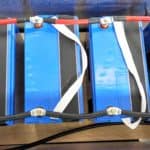
MENUMENU
TALK TO AN EXPERT
Special Hours: 7AM – 6PM PST
TALK TO AN EXPERT
Special Hours: 7AM – 6PM PST
Off-grid lifestyles are becoming more and more popular, but with hotter summers, lots of people ask a great question: How does one stay cool off-grid? Sure, it’s great to be disconnected from the grid but what happens when it’s 100 degrees outside?
This is where solar-powered air conditioners come in. They allow you and your family to stay cool regardless of where you are and whether or not you have access to hookups. Keep reading to learn all about solar-powered A/Cs, including their advantages, disadvantages, and whether or not they’re worth it.
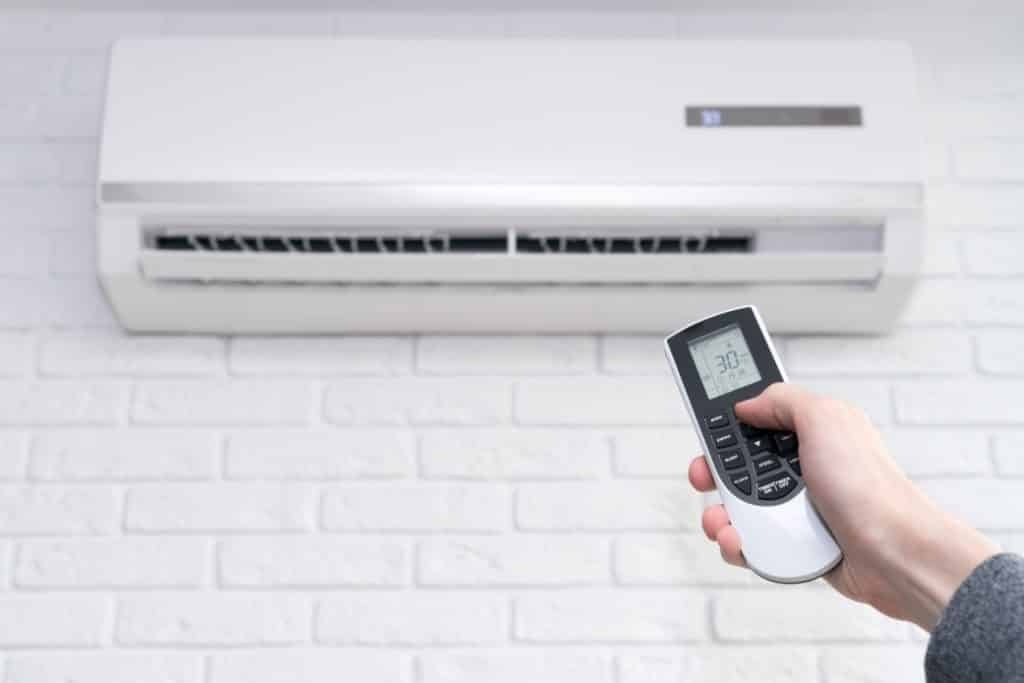
A solar-powered air conditioner is essentially any air conditioning system that runs off solar power. And while this definition sounds simple, it actually narrows the possible A/C units down to a select few. This is because most conventional A/Cs draw a lot of power — anywhere between 2,000 – 6,000 watts per hour.
This is more than most standard off-grid systems can handle, preventing many off-grid homes, RVers, and van lifers from enjoying nice cool air in the summer heat. When power comes at a premium, comfort might come at a steep price.
➡ The initial power surge when an RV air conditioner is turned on also poses problems for RV power systems, so many campers use soft starts for RV ACs.
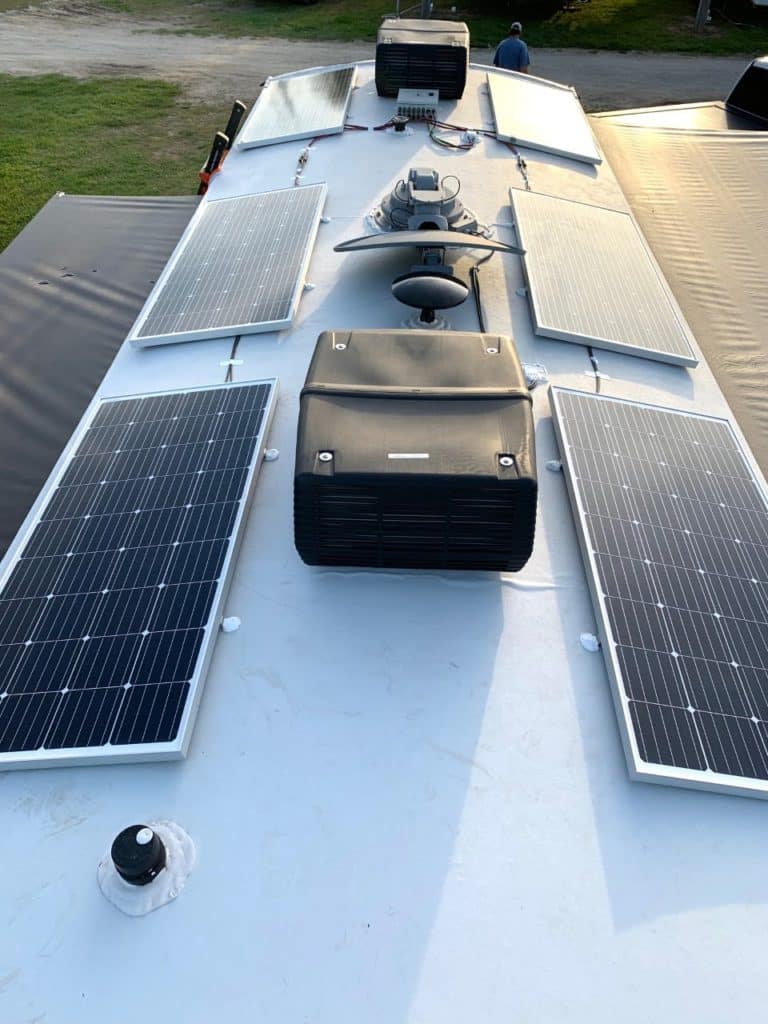
Solar-powered air conditioners basically come in three different types. These are DC-powered units, high-efficiency SEER (Seasonal Energy Efficiency Ratio) split units, and hybrid solar air conditioners. The DC-powered units are perhaps the most advantageous for off-grid use. They run directly off the DC power from your batteries that are charged by your solar panels. Thus, they’re relatively efficient. And you won’t need an inverter to convert the power from DC to AC which will save the conversion losses.
On the other hand, high-efficiency SEER split units run off AC power. They will need an inverter when running off battery power. However, they can be efficient enough to run off many off-grid solar systems, with a SEER rating of 20 or higher.
The third and final option is a hybrid solar air conditioner. These use a combination of AC and DC electricity and thus use both the power from “the grid” and your batteries. This helps them to reduce overall power needs by using solar energy to run the compressor and AC electricity to run the fan. Hybrid units are less common but can be a great option if your system and funds allow for one.
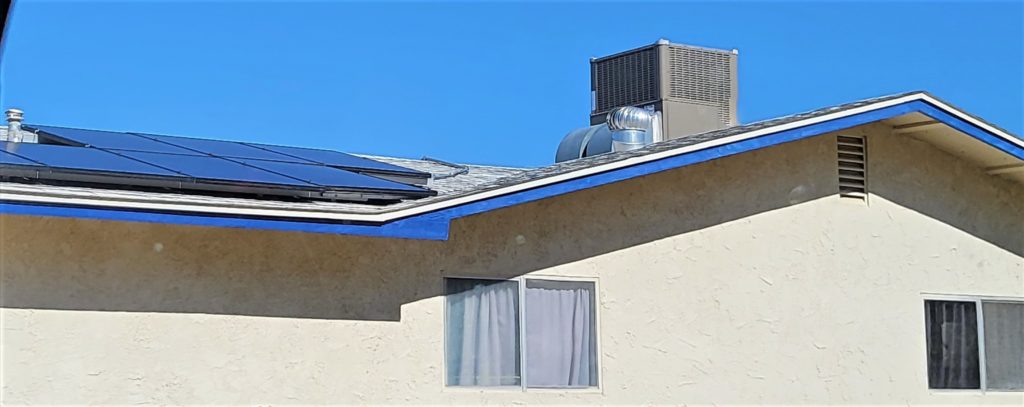
The advantages of solar air conditioners are pretty obvious. With the right power setup, they allow you to stay cool regardless of whether or not you have access to the power grid. This can be a game-changer when it comes to travel. You’ll be able to comfortably explore places in the heat of the summer and reduce your overall power consumption. This allows you to forgo hookups, venture off the beaten path, and stay out a little longer regardless of the weather, therefore saving you money and improving your overall travel experience.
Even if a generator is required to run an air conditioner, having it even partially solar-powered can be a huge benefit. Running a generator the whole time to power an air conditioner is very wasteful and obnoxious. Having air conditioning that can run off batteries will significantly reduce generator runtime needs. It’s very popular to design a solar system to run air conditioning overnight at a minimum so that a generator is not required until the next day.
➡ Can You Run Your RV AC Unit on Lithium Battery Power? Find out how!
The disadvantages of a solar-powered air conditioner will vary depending on the kind you choose, so let’s break it down according to type. In general, DC solar-powered air conditioners are fantastic when it comes to keeping cool off battery power alone. However, you’ll still need an AC to DC converter to run it if you’re connected to the power grid. They can also be on the pricier side, and having an adequate solar and battery system is an absolute must.
The downsides of high-efficiency SEER units differ slightly because they solely run off AC power. This means that they require a powerful inverter, as well as an adequate battery and solar setup. So, while they’re one of the most efficient A/C units you can buy, you’ll also need to factor in the cost of a high-powered inverter to run it off-grid.
Lastly, the hybrid solar air conditioner provides the benefit of using multiple energy sources to maximize your power use. However, like many of the finest things, they’re expensive. And because they’re using multiple power sources, they can also limit the number of appliances you can run at one time.
The number of solar panels you’ll need to power your air conditioner will depend on the air conditioner’s size and kilowatt-hour needs. Location and time of year also play a significant role that you can account for as well. You must also factor in the size of your battery bank as the more you can store, the longer you can ride through cloudy days.
In general, however, you will need your panels to produce more than the air conditioner draws. A good rule of thumb is to be able to produce three times the energy that the AC consumes. This gives you enough energy to store for nighttime and other uses.
For example, if your air conditioner consumes 1200 watts, 3600 watts of solar should guarantee proper operation in most situations. Keep in mind that this will vary significantly based on how large the space you are cooling is and how often the AC is cycling.
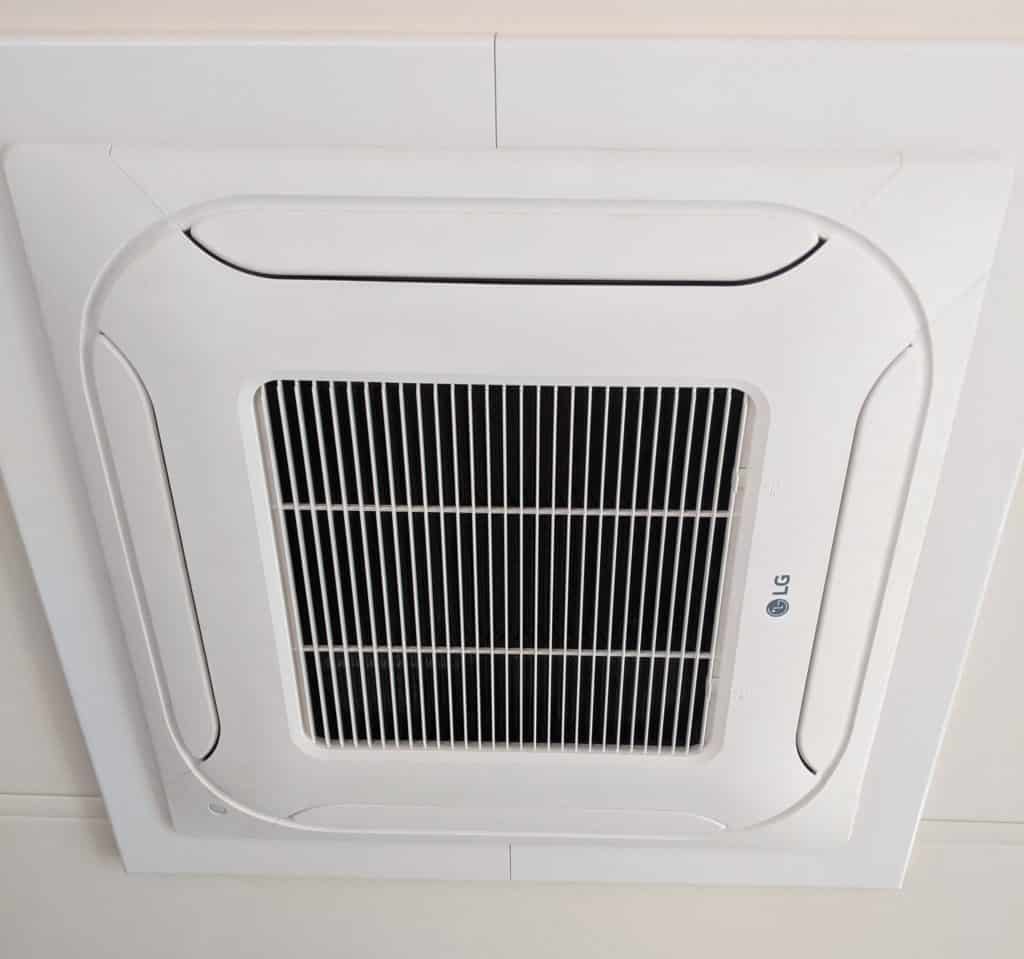
So, how much money will you have to shell out to stay comfortably cool off-grid? That entirely depends on the A/C unit you purchase. DC-powered units typically run between $1,300 – $2,750. Meanwhile, high-efficiency split units fall into the $1,400 range. In contrast, hybrid A/C units may cost you $3,000 or more. Like anything, the price will depend on the brand, features, and type you choose.
With modern off-grid power systems, there is no reason to be uncomfortable off-grid. Many of our customers like the Mortons on the Move and Geo Astro RV run off grid air conditioners with solar and Battle Born Batteries. All of them rave about being able to stay comfortable wherever they are. So, if you ask our customers, you will hear a resounding YES! Solar-powered air conditioning is very worth it!
Do you have any questions about solar-powered air conditioners? Drop them in the comments below!
We know that building or upgrading an electrical system can be overwhelming, so we’re here to help. Our Reno, Nevada-based sales and customer service team is standing by at (855) 292-2831 to take your questions!
Also, join us on Facebook, Instagram, and YouTube to learn more about how lithium battery systems can power your lifestyle, see how others have built their systems, and gain the confidence to get out there and stay out there.
Shop Best Sellers








Ask a technical specialist now at 855.292.2831
Stay in the Know
Take our short Customer Survey for a chance to …
WIN a $300 Visa Gift Card